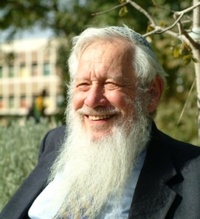Pure Mathematics Concentration (B.A. or B.S.)
This page describes the major requirements for the Mathematics undergraduate degree (B.A. or B.S.) with a pure mathematics concentration. You may also check the bulletin entry.
In addition to completing the calculus sequence (20100, 20200/21200 and 20300/21300), students must complete a minimum of nine courses of mathematics as follows.
| Required Courses | ||||||||||||||||||||||||||||||||||||||||||||||||||||||||||||||||||||||||||||||||||||||||||||||||||
|---|---|---|---|---|---|---|---|---|---|---|---|---|---|---|---|---|---|---|---|---|---|---|---|---|---|---|---|---|---|---|---|---|---|---|---|---|---|---|---|---|---|---|---|---|---|---|---|---|---|---|---|---|---|---|---|---|---|---|---|---|---|---|---|---|---|---|---|---|---|---|---|---|---|---|---|---|---|---|---|---|---|---|---|---|---|---|---|---|---|---|---|---|---|---|---|---|---|---|
| Number | Title | Credits | ||||||||||||||||||||||||||||||||||||||||||||||||||||||||||||||||||||||||||||||||||||||||||||||||
| 30800 | Bridge to Advanced Math | 3 | ||||||||||||||||||||||||||||||||||||||||||||||||||||||||||||||||||||||||||||||||||||||||||||||||
| 32300 | Advanced Calculus I | 4 | ||||||||||||||||||||||||||||||||||||||||||||||||||||||||||||||||||||||||||||||||||||||||||||||||
| 32404 | Advanced Calculus II | 4 | ||||||||||||||||||||||||||||||||||||||||||||||||||||||||||||||||||||||||||||||||||||||||||||||||
| 34600 | Elements of Linear Algebra | 3 | ||||||||||||||||||||||||||||||||||||||||||||||||||||||||||||||||||||||||||||||||||||||||||||||||
| One of the following: | ||||||||||||||||||||||||||||||||||||||||||||||||||||||||||||||||||||||||||||||||||||||||||||||||||
| 34700 | Elements of Modern Algebra | 4 | ||||||||||||||||||||||||||||||||||||||||||||||||||||||||||||||||||||||||||||||||||||||||||||||||
| 44900 | Introduction to Modern Algebra | 4 | ||||||||||||||||||||||||||||||||||||||||||||||||||||||||||||||||||||||||||||||||||||||||||||||||
| At least three Elective Courses from among the following: | ||||||||||||||||||||||||||||||||||||||||||||||||||||||||||||||||||||||||||||||||||||||||||||||||||
| 32800 | Methods of Numerical Analysis | 3 | ||||||||||||||||||||||||||||||||||||||||||||||||||||||||||||||||||||||||||||||||||||||||||||||||
| 34500 | Theory of Numbers | 3 | ||||||||||||||||||||||||||||||||||||||||||||||||||||||||||||||||||||||||||||||||||||||||||||||||
| 36000 | Introduction to Modern Geometry | 3 | ||||||||||||||||||||||||||||||||||||||||||||||||||||||||||||||||||||||||||||||||||||||||||||||||
| 36500 | Elements of Combinatorics | 4 | ||||||||||||||||||||||||||||||||||||||||||||||||||||||||||||||||||||||||||||||||||||||||||||||||
| 37500 | Elements of Probability Theory | 4 | ||||||||||||||||||||||||||||||||||||||||||||||||||||||||||||||||||||||||||||||||||||||||||||||||
| 37600 | Mathematical Statistics | 4 | ||||||||||||||||||||||||||||||||||||||||||||||||||||||||||||||||||||||||||||||||||||||||||||||||
| 39100 | Methods of Differential Equations | 3 | ||||||||||||||||||||||||||||||||||||||||||||||||||||||||||||||||||||||||||||||||||||||||||||||||
| The corresponding A-level graduate courses may be substituted for any of the following courses. For example, A3200 may be taken instead of 43200. Consult the Assistant Chair for permission. | ||||||||||||||||||||||||||||||||||||||||||||||||||||||||||||||||||||||||||||||||||||||||||||||||||
| 43200 | Functions of a Complex Variable | 4 | ||||||||||||||||||||||||||||||||||||||||||||||||||||||||||||||||||||||||||||||||||||||||||||||||
| 43400 | Functions of a Real Variable | 4 | ||||||||||||||||||||||||||||||||||||||||||||||||||||||||||||||||||||||||||||||||||||||||||||||||
| 43500 | Partial Differential Equations | 4 | ||||||||||||||||||||||||||||||||||||||||||||||||||||||||||||||||||||||||||||||||||||||||||||||||
| 44300 | Set Theory | 4 | ||||||||||||||||||||||||||||||||||||||||||||||||||||||||||||||||||||||||||||||||||||||||||||||||
| 44400 | Mathematical Logic | 4 | ||||||||||||||||||||||||||||||||||||||||||||||||||||||||||||||||||||||||||||||||||||||||||||||||
| 46100 | Differential Geometry | 4 | ||||||||||||||||||||||||||||||||||||||||||||||||||||||||||||||||||||||||||||||||||||||||||||||||
| 46300 | Topology | 4 | ||||||||||||||||||||||||||||||||||||||||||||||||||||||||||||||||||||||||||||||||||||||||||||||||
| 47700 | Stochastic Processes I | 4 | ||||||||||||||||||||||||||||||||||||||||||||||||||||||||||||||||||||||||||||||||||||||||||||||||
| 47800 | Advanced Mathematical Statistics | 4 | ||||||||||||||||||||||||||||||||||||||||||||||||||||||||||||||||||||||||||||||||||||||||||||||||
| 51100 | Selected Topics in Pure Mathematics | 4 | ||||||||||||||||||||||||||||||||||||||||||||||||||||||||||||||||||||||||||||||||||||||||||||||||
| 51200 | Selected Topics in Classical Analysis | 4 | ||||||||||||||||||||||||||||||||||||||||||||||||||||||||||||||||||||||||||||||||||||||||||||||||
| 51300 | Selected Topics in Probability and Statistics | 4 | ||||||||||||||||||||||||||||||||||||||||||||||||||||||||||||||||||||||||||||||||||||||||||||||||
Total Credits for Specialization: 27-30
Related Field Course Requirement
Students are also required to fulfill a minor concentration of two advanced courses with mathematical content from an allied discipline (e.g., Physical Sciences, Computer Science, Philosophy, Economics or Engineering) to be approved by the Assistant Chair. Valid courses include:
- Chem 33000 Physical Chemistry I
- Chem 33200 Physical Chemistry II
- CSc 21200 Data Structures
- CSc 22000 Algorithms
- CSc 30400 Intro to Theoretical Comp Sci
- CSc 42200 Computability
- CSc 44600 Mathematical Optimization Techniques
- CSc 45000 Combinatorics and Graph Theory (unless already taken Math 36500)
- CSc 48000 Cryptography
- Eco 42150 Advanced Financial Economics
- Eco 42250 Options and Futures
- Eco 33150 Introduction to Econometrics
- Eco 43550 Econometrics 2
- Phil 32100 Symbolic Logic
- Phil 32200 Philosophy of Science
- Phil 33700 Decision Theory
- Phys 31500 Medical Physics
- Phys 32300 Quantum Mechanics for Applied Physicists
- Phys 35100 Mechanics
- Phys 35300 Electricity and Magnetism I
- Phys 35400 Electricity and Magnetism II
- Phys 45100 Thermodynamics and Statistical Physics
- Phys 45200 Optics
This list is not meant to be exhaustive. If a student feels that a non-introductory course in another field could be judged to have “serious mathematical content,” they can ask that the course be analyzed for suitability by the math department, in consultation with faculty members from the related field. Note that with changes approved by the Pure Mathematics committee but not yet formally approved, 300- and 400- level math electives can also be used to meet this requirement. Consult an advisor for more information.
Additional requirements for the BS
One needs to complete four “Lab Sciences” intro courses from: BIO 10100, 10200; CHEM 10301, 10401; EAS 10600, 22700; PHYS 20300, 20400, 20700, 20800. (Remark: Students should take Phys 207-208 if they intend to take advanced physics courses as part of the Related Field course requirement above.)
Degree Maps (Four-year graduation plans)
Plans for graduating in four years with a Mathematics degree with a concentration in pure mathematics can be found here:
CLAS Requirements
Students must also meet the requirements of the College of Liberal Arts and Sciences which include GPA requirements (both overall and in the major) as well as residency requirements.
Additional requirements all degrees
In addition to major requirements, students must complete the general requirements of the college. For more information, please consult the bulletin chapter entitled General Education Requirements (Pathways).
Honors
Students planning to attend graduate school in mathematics are urged to apply for admission to the department Honors Program, which may lead to a degree with honors. Candidates should see the departmental Honors Coordinator no later than the beginning of their junior year to plan a program of study.
Questions
Questions about the requirements should be directed to the student's advisor in the Math Department, or to the Lead Pure Mathematics Advisor by email to puremathadvisor@ccny.cuny.edu
